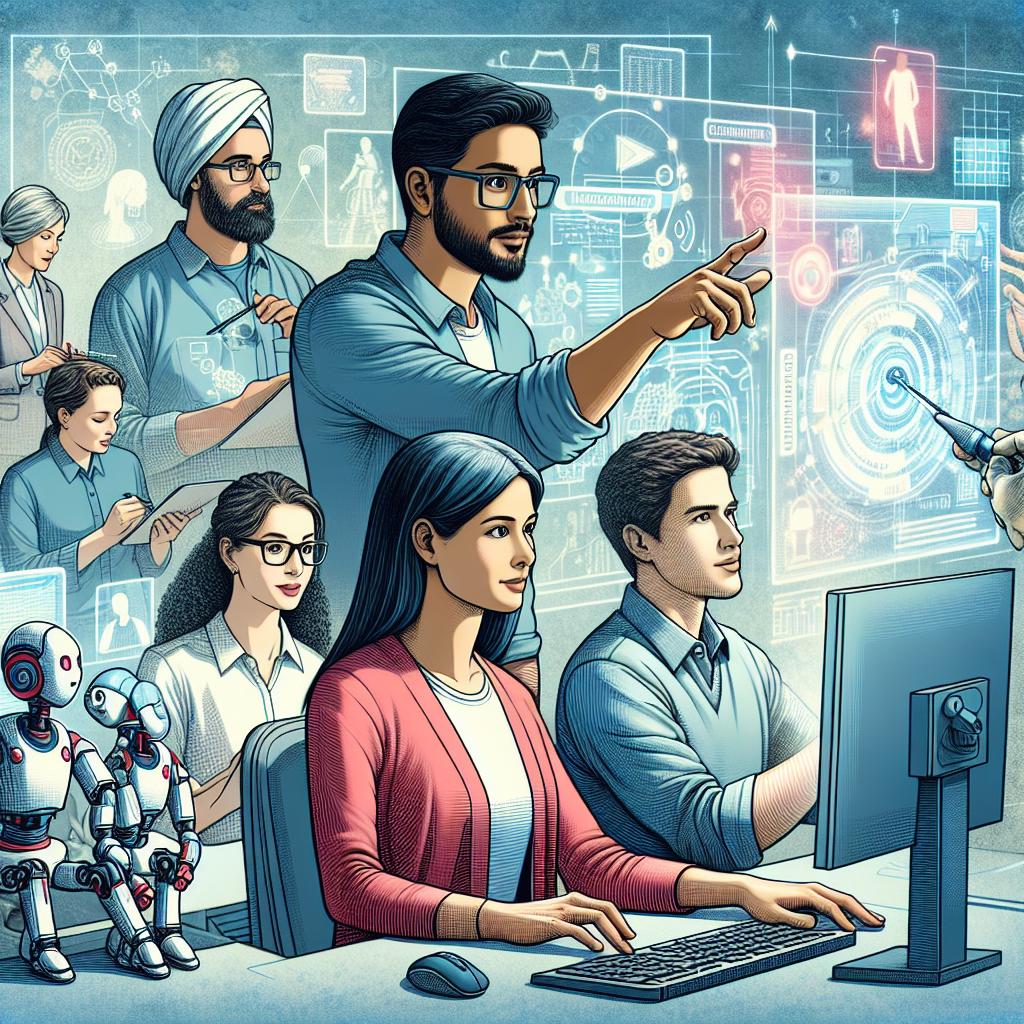Transformasi Digital mengubah karier dengan mempengaruhi perubahan dalam teknologi, keterampilan, dan cara kerja, menciptakan peluang baru dan tantangan.
Transformasi Digital dan Dampaknya terhadap Karier
-
Table of Contents
- Introduction
- Understanding Digital Transformation
- The Digital Landscape in Indonesia
- Impact on Traditional Careers
- New Opportunities in the Digital Economy
- Preparing for a Digital Career
- 1. Embrace Lifelong Learning
- 2. Develop Digital Skills
- 3. Build a Professional Network
- 4. Stay Updated with Industry Trends
- The Future of Digital Careers in Indonesia
- Summary
Introduction

Digital transformation has become a buzzword in recent years, and its impact on various aspects of our lives cannot be ignored. One area where digital transformation has had a significant impact is in the world of careers. In Indonesia, the digital revolution has brought about numerous changes in the way people work, the skills required, and the opportunities available. This article will explore the concept of digital transformation and its implications for careers in Indonesia.
Understanding Digital Transformation
Digital transformation refers to the integration of digital technology into all aspects of an organization, fundamentally changing how it operates and delivers value to its customers. It involves the use of technologies such as artificial intelligence, big data, cloud computing, and the Internet of Things to streamline processes, enhance efficiency, and create new business models.
The Digital Landscape in Indonesia
Indonesia, with its large population and growing economy, has witnessed a rapid increase in digital adoption in recent years. The country has a high internet penetration rate, with millions of Indonesians accessing the internet through their smartphones. This digital revolution has opened up new opportunities for businesses and individuals alike.
Impact on Traditional Careers
Digital transformation has disrupted traditional careers in various industries. Jobs that were once considered stable and secure are now at risk of being automated or outsourced. For example, the rise of e-commerce platforms has significantly impacted the retail industry, leading to the closure of many brick-and-mortar stores. Similarly, the automation of manufacturing processes has reduced the demand for manual labor in factories.
New Opportunities in the Digital Economy
While digital transformation may pose challenges to traditional careers, it also creates new opportunities in the digital economy. The demand for digital skills such as data analysis, programming, and digital marketing has skyrocketed. Startups and tech companies are constantly on the lookout for talent with these skills, offering attractive job prospects and higher salaries.
Preparing for a Digital Career
To thrive in the digital era, individuals need to adapt and acquire the necessary skills. Here are some steps to prepare for a digital career in Indonesia:
1. Embrace Lifelong Learning
Digital transformation is an ongoing process, and new technologies and trends emerge regularly. It is crucial to adopt a mindset of lifelong learning to stay relevant in the digital economy. This can involve taking online courses, attending workshops, or pursuing higher education in fields related to digital technology.
2. Develop Digital Skills
Digital skills are in high demand in the job market. Individuals should focus on developing skills such as coding, data analysis, digital marketing, and project management. There are numerous online platforms and resources available to learn these skills, making it accessible to anyone with an internet connection.
3. Build a Professional Network
Networking plays a vital role in career advancement, especially in the digital age. Building connections with professionals in the industry can open doors to job opportunities, mentorship, and collaborations. Attending industry events, joining online communities, and leveraging social media platforms can help expand one’s professional network.
4. Stay Updated with Industry Trends
The digital landscape is constantly evolving, and it is essential to stay updated with the latest industry trends. Following industry blogs, subscribing to newsletters, and participating in online forums can provide valuable insights into emerging technologies and market demands.
The Future of Digital Careers in Indonesia
The digital transformation in Indonesia is still in its early stages, and the future looks promising for digital careers. The government has recognized the importance of digitalization and has launched initiatives to support the growth of the digital economy. The rise of startups and the increasing investment in technology infrastructure further indicate a bright future for digital careers in Indonesia.
Summary
Digital transformation has had a profound impact on careers in Indonesia. While traditional careers face challenges due to automation and outsourcing, the digital economy offers new opportunities for those with the right skills. To succeed in the digital era, individuals need to embrace lifelong learning, develop digital skills, build a professional network, and stay updated with industry trends. The future of digital careers in Indonesia looks promising, with the government and private sector actively supporting the growth of the digital economy. By adapting to the changing landscape and acquiring the necessary skills, individuals can thrive in the digital era and build successful careers.







